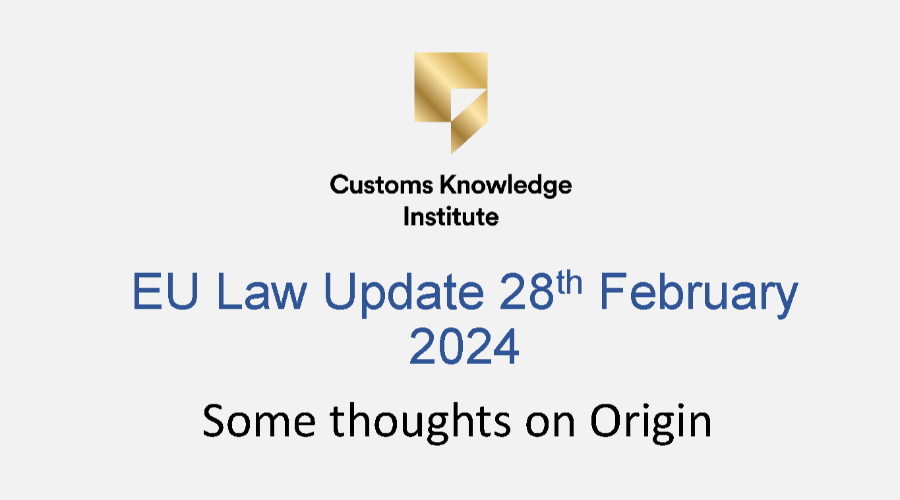- Тема: origin
Determination of preferential origin means a determination as to whether a product qualifies as an originating product in accordance with the Protocol on Rules of Origin to a Free Trade Agreement or the provisions of the Generalised System of Preferences (GSP).
In the process of determining the preferential origin, you will have to answer these main questions:
- What is the HS code of your product?
- Is the product wholly obtained in the country or not?
- Do these rules provide origin to the product: minimal operations, list rules, cumulation, tolerance?
- Are the principles of territoriality, “no drawback”, and direct transport (non-manipulation) respected?
In the video, some of the points are explained.
- Рынок: Global

Комментарии ()
Чтобы оставить комментарий, вам необходимо